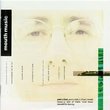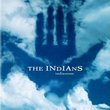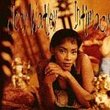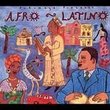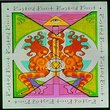| All Artists: Yulduz Usmanova Title: Selection Album Members Wishing: 0 Total Copies: 0 Label: Blue Flame Original Release Date: 5/27/1997 Re-Release Date: 4/15/1999 Album Type: Import Genres: International Music, Pop, Rock Styles: Europe, Eastern Europe Number of Discs: 1 SwapaCD Credits: 1 UPCs: 743214669525, 669910172254, 789368549825 |
Search - Yulduz Usmanova :: Selection Album
 | Yulduz Usmanova Selection Album Genres: International Music, Pop, Rock
Yulduz Usmanova's music is an exceptional fusion in the international pop music scene. The 32-year-old graduate of the department for oriental music at the conservatory in Tashkent composes her songs on the basis of old fo... more » |
Larger Image |
CD DetailsSynopsis
Album Description Yulduz Usmanova's music is an exceptional fusion in the international pop music scene. The 32-year-old graduate of the department for oriental music at the conservatory in Tashkent composes her songs on the basis of old folk songs that are still being sung in the usbekian villages today. This traditional usbekian folklore, that possesses Turkish, Persian and Central Asian influences, is being mixed by her with western Rock, Pop and Dance styles. "When I started, I thought this traditional music has to be preserved", explains Yulduz. "Only that it needed an update." The single compositions are being carried by traditional instruments such as the Tambour (Central Asian long neck lute) or a Doira (original usbekian percussion instrument) and modern electronic. The result is an interesting synthesis, where the single styles are not deluded, but used in its original form. In Central Asia, Yulduz has advanced to a superstar using these "EthnoCrossover"variation. In Europe, in music magazines and feature sections, she was highly praised for her first three albums "Alma Alma" (1993), "Jannona" (1995) and "Binafscha" (1996). The album "Binafscha" (1996) unites temperament, rhythmic songs, melodious songs and also melancholic ballads. For the first time, the entire album was recorded at the Calren Studios in Freiburg, Germany; Zeus B. Held (Transvision Vamp, Nina Hagen...) produced and mixed the CD in cooperation with popular DJ's in the multicultural hit metropolis London. The first single, is the rhythmic title song "Binafscha" with additional remix versions. There have also been changes in her texts: In the past, she often used phrases from the Koran or the Bible. She also borrowed from the works of classical poets. In the mean time, she uses texts from contemporary poets. "I want to dissociate myself from the classical poets, because it is easy to interpret meanings, that weren't even meant. Now I want to concentrate on the contemporary poets, because their thoughts and feelings reflect more of what we know", explains the singer. "Onajon" (Mother), for example, is a text from Muhamad Yussuf, who already contributed lyrics to the last CD. The song describes the mother/son relationship. Very often, the songs can be interpreted on different levels and metaphors from Central Asian poets are used to express an incident. The title song "Binafscha" (Violet) doesn't just stand for the blooming of this first spring flower in Uzbekistan. "In a sense, the flower is like a young girl, that is slowly developing through her puberty into a woman." The new compositions document further perfection in songwriting and in the arrangements from the usbekian artist and with her powerful, but at the same time, sensible voice, Yulduz is able to mediate the feelings and moods of the lyrics. The Compilation "the selection album", with a length of 75 minutes, is an interesting retrospective of Yulduz Usmanova´s work so far. The CD also contains 3 unreleased titles as Bonustracks. Similarly Requested CDs
|
CD ReviewsPowerful lyrics Mehmet Yagci | Istanbul | 04/11/2000 (5 out of 5 stars) "I am not a music fan. I do not ever feel like listening to music in the car. Yet, I was a radio producer in a previous life, and I came across this unique CD from Uzbekistan. I cannot help over and over listening to its powerful lyrics. Yulduz makes the world seem such a small and unimportant thing in the wider scheme of being an honest person. Everyone traverses this road called the life, and she says "The sultans and the beggars are equal on this road."" SongsThat Stop Your Heart Laura | Asheville, NC | 02/24/2004 (5 out of 5 stars) ""Schock va Gado" the lead track on this album is reason enough to own this CD. It will stop the clock in the room you are in. It will bring your deepest questions to your mind's surface and somehow ease them into answers. I heard it five years ago while in London at a friend's apartment and have been hunting for it ever since. (I even went to an Uzbekistani hair stylist in Manhattan several times hoping she'd remember to bring me a copy of her CD!--never changed my hairstyle so quickly or had my nails done so frequently in my life.) Finally, Yulduz is gaining sufficient popularity here in the West to appear on Amazon. Apparently, she's sold more records than Madonna (not many can say that!) world-wide, and that's motive enough to hear what the rest of the world is listening to. No material girl, though, her songs use lyrics of poets, echo the sounds of horses' hooves (remember--it's Uzebekhistan; now, picture all the horses!), and the tone of her voice moves into and under your skin. There's no need for translation, just a room to listen in."
|

 Track Listings (16) - Disc #1
Track Listings (16) - Disc #1
